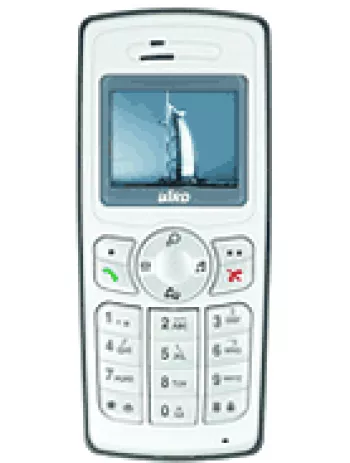
Introduction to the Bird S296
The Bird S296 is a device that harkens back to a time when mobile phones were straightforward, focusing solely on voice calls and basic text messaging. Introduced in 2007, this device was part of the feature phone category which catered to users who prioritized simple communication over the plethora of functions offered by modern smartphones. Despite being discontinued, the Bird S296 remains an interesting piece for vintage mobile phone enthusiasts and those looking into the development of mobile technology.
Network and Connectivity
The Bird S296 operates on GSM technology, which was the standard for mobile networks in the early 2000s. It specifically supports GSM 900 and 1800 bands, which were common in Europe, Asia, and parts of Africa at that time. Notably, this device does not support GPRS or EDGE, indicating an absence of internet connectivity functions, underlining its purpose as a strictly call-and-text device.
Launch and Availability
Announced in 2007, the Bird S296 had a relatively short market presence, eventually becoming discontinued. During its time, it served consumers seeking budget-friendly and durable phones, becoming a notable choice in markets where advanced technological infrastructure was limited or where consumers needed devices with longer battery life and simpler functionalities.
Body and Design
With dimensions of 105 x 45 x 15.7 mm and a weight of just 75 grams, the Bird S296 was compact and lightweight, making it easily portable. Its design was conventional for the period, featuring a candy bar form with a monochrome graphic display. The phone supports a Mini-SIM card, which was the norm before the advent of micro and nano-SIM cards.
Display
The device features a 1.4-inch monochrome graphic screen with a resolution of 101 x 64 pixels. While this may seem rudimentary compared to today’s standards, it was typical for feature phones of that era, balancing the need to display basic information clearly while conserving battery life.
Memory
Internal storage on the Bird S296 is quite limited, reflecting the phone's primary use for voice calls and text messaging only. The device does not support additional memory card slots, which limits its function to the storage of a certain number of phonebook entries and call records. It could store 20 dialed, 20 received, and 20 missed calls, alongside its phonebook feature for managing contacts.
Multimedia and Sound
The Bird S296 does not include advanced multimedia features like music or video playback due to its lack of a loudspeaker and audio jack. However, it supports downloadable polyphonic and MIDI ringtones, which were a popular way for users to personalize their phone experiences in the pre-smartphone era.
Communication Features
In terms of communication, the phone is quite basic, only supporting SMS for messaging. The absence of Bluetooth, WLAN, or any form of advanced connectivity features underlines its use as a basic communication tool. While it lacks internet browsing capabilities, the inclusion of basic games provides a small entertainment value.
Battery Life
The Bird S296 is powered by a removable Li-Ion 500 mAh battery, which offers a standby time of up to 140 hours and up to 2 hours of talk time. The modest power requirements of the device's simple hardware mean that this battery capacity was adequate for regular use, offering extended periods of use without needing a recharge frequently.
Physical Appearance and Colors
The Bird S296 is available in two colors: black and grey. This minimalist color range aligns with the phone's simple and understated design. The choice of colors could appeal to a wide range of users, who favored practicality over flamboyance in a device meant strictly for communication.
Summary of Features
In summary, the Bird S296 is a noteworthy device from the feature phone era, suited for users needing an easy-to-use mobile device without the complexity and battery drain of modern smartphones. Its limited features focused on delivering efficient voice communication and simple messaging options, targeting markets and user preferences of its time, such as resilience, battery life, and affordability over multifunctionality.
Despite being discontinued, the Bird S296 remains a fascinating example of mobile phone design, highlighting the priorities and technological limitations of its era. It serves as a reminder of how far mobile technology has evolved and of the foundational models that paved the way for today’s advanced smartphones.
Main Features of Bird S296
- Lightweight Design: Weighs only 75 g (2.65 oz).
- Compact Dimensions: Measures 105 x 45 x 15.7 mm.
- Basic GSM Technology: Supports GSM 900 / 1800 bands.
- Monochrome Graphic Display: 1.4 inches in size.
- Efficient Phonebook: Can store and manage contact information.
- Call Records: Tracks up to 20 dialed, received, and missed calls.
- Battery Life: Removable Li-Ion 500 mAh battery with up to 140 hours standby time and 2 hours talk time.
- Vibration and Downloadable Ringtones Support: Includes MIDI ringtones.
- Games Available: Offers basic gaming options.
- Available in Two Colors: Black and Grey.
Disadvantages of Bird S296
- Lacks GPRS and EDGE for data connectivity.
- Discontinued model, limiting future support and availability.
- Monochrome graphic display with low resolution and small size.
- No memory card slot for expandable storage.
- Limited call record capacity (only 20 dialed, received, and missed calls each).
- No camera capabilities.
- Absent loudspeaker functionality.
- No 3.5mm headphone jack.
- Lacks Bluetooth, WiFi, radio, and USB connectivity.
- No GPS positioning capabilities.
- No browser support or advanced messaging features beyond SMS.
- No Java support for additional applications.
- Short battery life with only up to 2 hours of talk time.
- Minimal color options (only Black and Grey).
View Also
More Phones
All Rights Reserved +14267 Phones © Mobilawy 2025
























